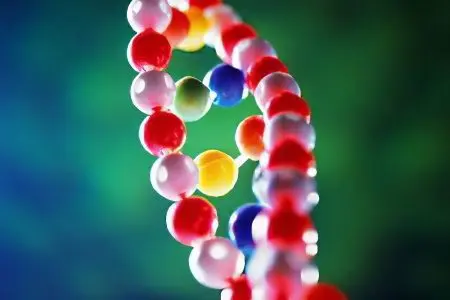What is the T3 hormone responsible for?

The T3 hormone is a thyroid hormone and is the most active of the two main hormones. You can meet its other name – triiodothyronine. The presence of the number three in the definition of a hormone is explained by the fact that each of its molecules contains just such an amount of iodine.
T3 is formed as a result of the breakdown of another hormone – T4, when one atom of iodine is split off from it. The process that occurs after the splitting off of an atom can be compared to the process of removing the pins from a grenade. The transformed, previously inactive T4, having transformed into triioditrin, becomes very active.
Its purpose is to control energy metabolic processes occurring in the human body. The hormone influences the breakdown of energy and sends it to where it is needed. Once in the bloodstream into the cells of the child’s brain, the hormone contributes to its rapid development. Thanks to the work of triiodothyronine in an adult, there is an increase in nerve conduction.
Triiodothyronine is important for the heart system and bone tissue, as it contributes to the activation of metabolism in them. General nervous excitability increases under the influence of triiodothyronine.
Hormone T3 free and total – what’s the difference?
A certain amount of triiodothyronine is able to be produced by gland cells in an already “ready” state, that is, with 3 iodine atoms. Once in the bloodstream, it is connected with the molecules of transporter proteins. Through the vessels, the hormone is transferred to the tissues that need it. But in a small amount, triiodothyronine remains in the blood, in an unbound form with protein molecules. This triiodothyronine is called “free T3 hormone”.
The hormone that remained free in conjunction with that bound to proteins is defined as total T3 hormone. It is its amount that is often indicative, with questionable results of tests for free hormone, which are carried out to determine thyroid disorders in humans.
[Video] Doctor MD Mikhail Yuryevich Bolgov, a surgeon of the highest category, will explain the difference between total and free T3 hormone. The features of its action and use in diseases of the thyroid gland are highlighted:









